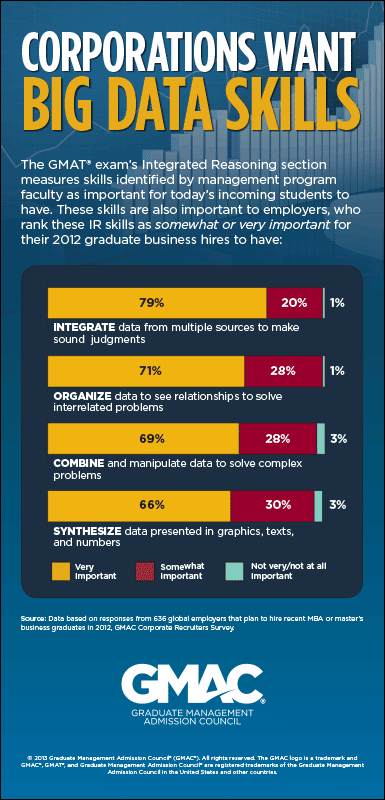
The movement toward leveraging big data has already swept fields as disparate as sports, healthcare, economics, and business and the ability to gather, interpret and act on data is emerging as one of the most important management skills of the next decade.
A 2011 report from McKinsey Global Institute projects that the US alone will need 140,000 to 190,000 more workers with “deep analytical” skills and 1.5 million more data-literate managers by 2018. And the 2012 IBM Tech Trends Report finds that more than half the IT and business decision makers say their organisations plan to increase their investment in business analytics.
READ: Data Analytics and Modelling – Seema Pun, current student of the University of Sydney Business School’s MBA program.
“Data-driven decisions tend to be better decisions. Leaders will either embrace this fact or be replaced by others who do,” wrote Andrew McAfee and Erik Brynjolfsson of the MIT Center for Digital Business in Harvard Business Review. “In sector after sector, companies that figure out how to combine domain expertise with data science will pull away from their rivals.”
Business schools are preparing the next generation of managers and business leaders by integrating and connecting these skills with a focus on innovation, managing global enterprises and driving business strategy.
The GMAT Exam and Big Data
As corporations are relying on data users, data analysts, and data scientists, business schools are developing talent to serve all these functions.
More than 150 graduate-level information systems or technology management programs at business schools accept the GMAT exam, the standardised test used for admission to business schools worldwide.
These include dozens of master’s programs in information technology or management information systems; eight doctoral programs in business, technology, systems, or information sciences; and seven MBA or EMBA programs in technology management. And since 2010, at least a dozen specialised master’s programs in business or data analytics have been launched at business schools.
The GMAT exam’s 30-minute Integrated Reasoning section, added in 2012, addresses Big Data skills that a survey of 740 management faculty worldwide identified as important for incoming management students.
“As computer technology has made more data—and more types of data— available, managers in many different fields are having to make data-driven decisions. Business schools are developing students’ ability to use data to solve complex problems and wanted to identify those raw skills in incoming students,” said Ashok Sarathy, vice president, GMAT Program.
“We developed the IR section, which measures test takers’ ability to organise, synthesise, combine, and integrate data from multiple sources and in a variety of formats.”
GMAC research has shown that these data analysis skills are valued by corporate recruiters and business school alumni alike.
Almost all employers surveyed in GMAC’s 2012 Corporate Recruiters Survey said Integrated Reasoning skills are important for their new graduate business hires to have. And the vast majority of business school alumni surveyed in the 2013 Alumni Perspectives Survey said they use Integrated Reasoning skills on the job. Moreover, the more they used these skills, the more likely they were to be ahead of or exactly where they expected to be in their career.







